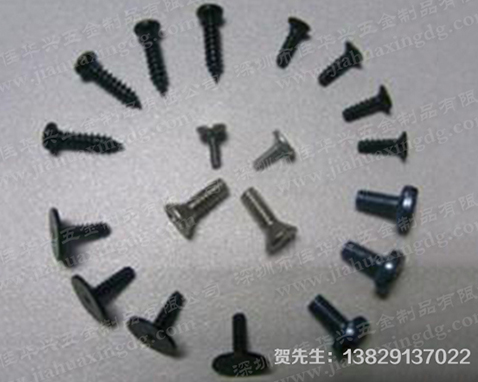Dongguan jiachao hardware technology co., LTD
Contact person: Mr. He
Telephone: 13829137022
Telephone: 0769-8333 3591
Fax: 0769-8333 5379
Mail box: hejianguo@jiachao-tech.com
Web site: www.jiachaotech.com
Web site : en.jiachaotech.com
Address: yingshuo industrial park, no.59, tianheng road, shahukou village, changping town, dongguan city

The first person to describe the spiral was the Greek scientist Archimedes (c. 287-212 BC). Archimedes' spiral is a large spiral inside a wooden cylinder that is used to raise water from one level to another, irrigating fields. The real inventor may not have been Archimedes himself. Maybe he's just describing something that already exists. Perhaps it was designed by ancient Egyptian craftsmen to irrigate the Banks of the Nile river.
In the middle ages, carpenters used wooden nails or metal nails to connect furniture to wooden structures. In the 16th century, nail makers began to produce nails with spirals that held things together more tightly. That's a small step from this kind of nail to a screw.
The metal nuts and bolts that first appeared as fasteners in Europe around 1550 were hand-made on simple wooden lathes.
The screwdriver (screwdriver) appeared in London around 1780. Carpenters have found that tightening a screw with a screwdriver holds things in place better than hitting it with a hammer, especially when it comes to fine grain screws.
In 1797, mosley invented the precision screw lathe made of all metal in London. The following year, Wilkinson produced a nut and bolt making machine in the United States. Both machines produce universal nuts and bolts. Screws were popular as fixtures because a cheap method of production had been found.
In 1836, Henry m. philips patented a screw for a cross-grooved head, marking a major advance in screw science. Different from the traditional slotted head screw, the edge of the cross slotted head screw head is different from the cross slotted head screw head. This design makes the screwdriver center automatically, not easy to slip, so popular. Common nuts and bolts held the metal parts together, so by the 19th century, the wood used to make machines to build houses could be replaced by metal bolts and nuts.
